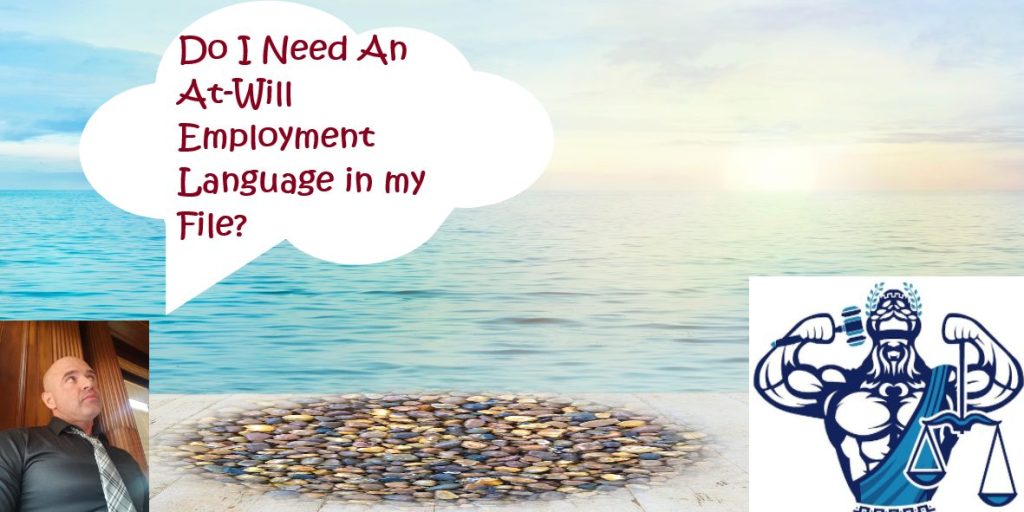There are many reasons why an individual’s employment can be terminated. If not being laid off or quitting, an employee can also be fired by their employer for several other reasons. One of these reasons concerns leaving work early. However, the issue is – should I be terminated for leaving work early? Still, should you sue your employer for terminating you because you left work post early? In this blog, which is precisely a discussion based on the video accessible through the link below and narrated by Vinny Miletti Esq., we have addressed these issues as a way of responding to questions that have come up on several occasions during interactions with our clients.
Before we dive into the discussion, let us have one scenario. An employee had a family emergency and had to leave his post immediately, which was earlier than he was supposed to. Unfortunately, it is now a couple of months since he was terminated by his employer, who served him with a written warning stating that he violated work policies because he left without notifying anyone. However, the employee claims that at the time he got the emergency, his senior project manager was on vacation, and all other principals were extremely busy at meetings and other engagements. The employee was a junior project manager, and the person who “snitched” on him essentially worked a rank below him. According to the employee, this person personally told his principal that he left early, without notice, and did not, before leaving, leave any tasks for her to handle for the rest of the day. However, the employee claims that these were all lies because he left her a dozen tasks to handle, which she actually completed without the need for any supervision or assistance. After all, she had the knowledge and skills to do so.
So, the employee is concerned whether he messed up things by signing the written warning and whether the employer would show up for an unemployment lawsuit he has filed. Still, he is also concerned about whether suing the employer is a waste of time and resources or not based on the circumstances of his termination.
Well, to start with, the employee should have been terminated because he violated work policies and failed to follow protocol that one should leave work at the designated time and, if not, notify someone, preferably a supervisor or manager above his rank. In this case, he should have notified the principal, but he was on vacation. The point is – work rules and regulations should not be bent for whatever reasons. In this scenario, the employee sounds like he did the contrary.
At this point, the employee has an unemployment hearing and, therefore, should be aware of how to draft his complaint. In our blog accessible through https://milettilaw.com/vinnyuniversity-drafting-complaints-101/, we mentioned that a complainant alleging to have been wrongfully terminated (probably a case of discrimination where applicable) should be able to show that he/she was an employee (able, willing, and ready to work) and therefore, entitled to unemployment benefits. Well, this is a low standard, but the Department of Labor (DOL) always does its best to get people their unemployment benefits where justifiable.
In this case, if the employer opposes the hearing and claims that the employee engaged in misconduct and violated work protocols and policies (leaving the work early and without notifying anyone), then he is bound to lose the lawsuit. It also goes without saying that it is hard to tell whether the DOL would rule in the employee’s favor, but based on our experience, they always try their best to do so because they are very employee-friendly. Again, they are motivated to get you your unemployment benefits because you have essentially paid into it. In most cases, it is up to the employer to accept or reject it. Further, the employee would have less to do about the disciplinary notice he signed because by signing it, he acknowledged its existence. Well, one may disagree with it but still acknowledge it nonetheless.
Therefore, whether one engages in such misconduct or violation of the terms of employment, they should fight for unemployment benefits and try to negotiate with their employer. If need be, one may even appeal and allow the DOL to decide whether you engaged in misconduct and, thus, should not get you benefits.
With that much, feel free to view our video accessible at https://www.youtube.com/watch?v=Mv0ZKGyxOZI and get it yourself directly from the horse’s mouth. Otherwise, in case you need further clarification regarding the information shared in the video and this blog post or require our services, we are just a call or email away!
As we continue dropping knowledge bombs every day, stay tuned for more educative videos, inspiring training, & legal advice. In the interim, if there are any questions or comments, please let us know at the Contact Us page!
Always rising above the bar,
Isaac T.,
Legal Writer, Author, & Publisher.
 Professional Legal & Business Services And Representation - English & Espanol!
Professional Legal & Business Services And Representation - English & Espanol!

 314-648-2586
314-648-2586 CALL US NOW
CALL US NOW








